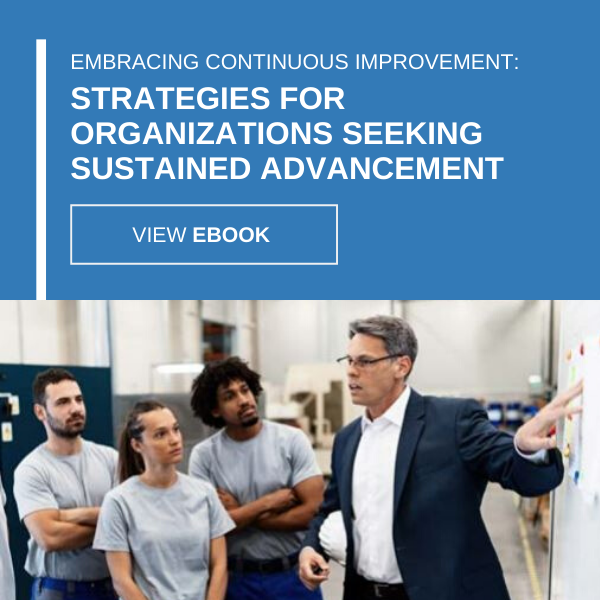-
Subscribe to Blog:
SEARCH THE BLOG
CATEGORIES
- Aerospace
- Asset Maintenance
- Automotive
- Blog
- Building Products
- Case Studies
- Chemical Processing
- Consulting
- Food & Beverage
- Forestry Products
- Hospitals & Healthcare
- Knowledge Transfer
- Lean Manufacturing
- Life Sciences
- Logistics
- Manufacturing
- Material Utilization
- Metals
- Mining
- News
- Office Politics
- Oil & Gas
- Plastics
- Private Equity
- Process Improvement
- Project Management
- Spend Management
- Supply Chain
- Uncategorized
- Utilities
- Whitepapers
BLOG ARCHIVES
- July 2024 (4)
- June 2024 (3)
- May 2024 (3)
- April 2024 (4)
- March 2024 (3)
- February 2024 (4)
- January 2024 (5)
- December 2023 (2)
- November 2023 (1)
- October 2023 (6)
- September 2023 (3)
- August 2023 (4)
- July 2023 (2)
- June 2023 (3)
- May 2023 (7)
- April 2023 (3)
- March 2023 (3)
- February 2023 (5)
- January 2023 (6)
- December 2022 (2)
- November 2022 (5)
- October 2022 (5)
- September 2022 (5)
- August 2022 (6)
- July 2022 (3)
- June 2022 (4)
- May 2022 (5)
- April 2022 (3)
- March 2022 (5)
- February 2022 (4)
- January 2022 (7)
- December 2021 (3)
- November 2021 (5)
- October 2021 (3)
- September 2021 (2)
- August 2021 (6)
- July 2021 (2)
- June 2021 (10)
- May 2021 (4)
- April 2021 (5)
- March 2021 (5)
- February 2021 (3)
- January 2021 (4)
- December 2020 (3)
- November 2020 (3)
- October 2020 (3)
- September 2020 (3)
- August 2020 (4)
- July 2020 (3)
- June 2020 (5)
- May 2020 (3)
- April 2020 (3)
- March 2020 (4)
- February 2020 (4)
- January 2020 (4)
- December 2019 (3)
- November 2019 (2)
- October 2019 (4)
- September 2019 (2)
- August 2019 (4)
- July 2019 (3)
- June 2019 (4)
- May 2019 (2)
- April 2019 (4)
- March 2019 (4)
- February 2019 (5)
- January 2019 (5)
- December 2018 (2)
- November 2018 (2)
- October 2018 (5)
- September 2018 (4)
- August 2018 (3)
- July 2018 (2)
- June 2018 (4)
- May 2018 (3)
- April 2018 (3)
- March 2018 (2)
- February 2018 (2)
- January 2018 (1)
- December 2017 (1)
- November 2017 (2)
- October 2017 (2)
- September 2017 (1)
- August 2017 (2)
- July 2017 (2)
- June 2017 (1)
- April 2017 (3)
- March 2017 (3)
- February 2017 (2)
- January 2017 (2)
- December 2016 (2)
- November 2016 (4)
- October 2016 (4)
- September 2016 (3)
- August 2016 (6)
- July 2016 (4)
- June 2016 (4)
- May 2016 (1)
- April 2016 (3)
- March 2016 (4)
- February 2016 (2)
- January 2016 (4)
- December 2015 (3)
- November 2015 (3)
- October 2015 (1)
- September 2015 (1)
- August 2015 (4)
- July 2015 (6)
- June 2015 (4)
- May 2015 (7)
- April 2015 (6)
- March 2015 (6)
- February 2015 (4)
- January 2015 (3)
CONNECT WITH US
Tag Archives: Egoism
Professionals who ascend to the heights of their respective industries often develop healthy egos on their way up. An inflated sense of self-confidence can be an asset in certain situations, like when company leaders are looking to inspire staff – an important executive capability that 70 percent of professional development experts believe is critical to C-suite success, according to researchers from Harvard Business School.
But corporate egoism can also cause problems. In fact, many executives who suffer serious career failures can link these collapses to unhealthy pursuits of power or status, Entrepreneur reported.
Collaborating with consultants is perhaps when most business leaders flex their well-developed egos to the detriment of the organization. Even while they suffer from operational deficiencies, business leaders often balk at the idea of taking advice from external parties, including those with decades of experience and demonstrable successes. This prideful approach can start leaders down the path toward greater dysfunction and even organizational failure. To cultivate strong relationships with third-party consultants, executives must check their egos at the door. How? Here are some tried-and-true techniques:
1. Know the signs of egoism
Having the ability to identify the point at which confidence unravels into arrogance is key to tamping down egotistic tendencies. Leaders who effectively work with outside experts know the signs of unbridled egoism, including constant complaining and an overwhelming urge to intervene in projects just to take credit, according to The Business Journal. If these inclinations sound familiar, it’s time for leaders to take a step back, evaluate and correct their behavior before things get out of hand.
2. Model the ideal collaborator
Few professionals enjoy working with narcissists. Many executives today probably remember a time when they worked for or with an egomaniac, but have since lost sight of the damaging power of egoism as they climb up the corporate ladder. Some even take on the qualities of the executive despots they once detested.
Business leaders who find themselves in such positions can reverse the damage by going back to basics and modeling positive collaborative behavior, Inc. contributor and Voray CEO David Olk found. Olk himself learned that by avoiding defensive, self-centered action and focusing on relationship building, he could accomplish more as a leader. These and other similar strategies ultimately make for fruitful collaborations with third-party consultants.
3. Take a step back and support
Consultants enter partnerships with one primary objective: helping the business address its operational pain points. They do not function in the service of executives. But leaders sometimes act as though this is the case, attempting to lord over external contributors by questioning decisions with which they do not agree, which can hurt the organization when it’s at its most vulnerable. The advice of experts goes unbidden, and without buy-in from top brass, their efforts for operational improvements never materialize.
Business leaders looking to improve their organizations with help from consultants must revert to a supporting role and focus solely on the company for optimal results. How? Maintaining an open mind and asking questions are two good places to start. Additionally, leaders who accept that they have blind spots are usually more open to ego-less collaboration and therefore more likely to facilitate consulting success.
Executives who are considering bringing in outside operational experts would be wise to embrace these techniques and strive for improvement, ego-free. Here at USC Consulting Group, we’ve spent the past 50 years helping companies achieve sustainable growth through the implementation of strategies centered around supply chain, operational excellence, and more. Connect with us today to learn more about our experience and how we can help your business find firmer footing in the marketplace.






